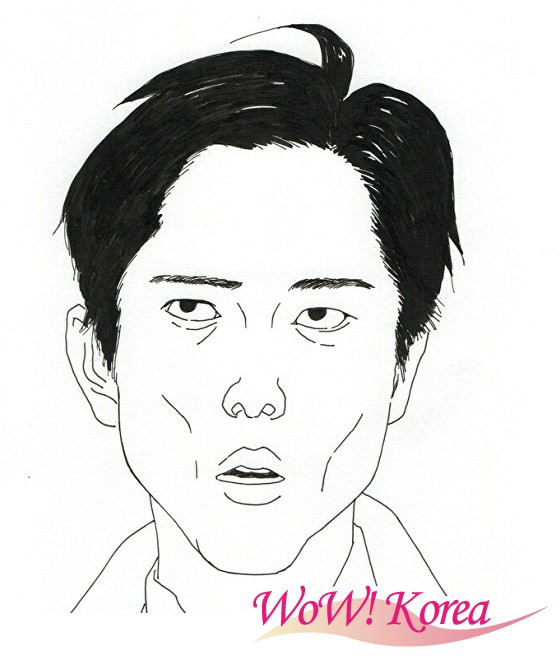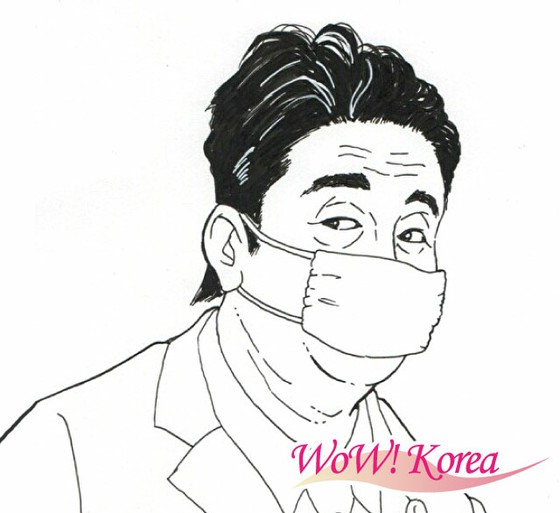  |
On the 31st of last month, the turnout of the 49th House of Representatives general election, which was held for the first time in four years, was 55.93%, the third lowest level in history. The low turnout in Japan is not a problem that has just begun, but it seems to have been a shock. There are also criticisms that voters have refused to participate in election campaigns and street demonstrations as well as voting, and that "Japanese people who turn away from the public" have become commonplace.
However, there is a reason to wonder why the turnout of the House of Representatives general election was sluggish even though Japanese society was nearly a month ago. This is because the general election of the House of Representatives had the meaning of refereeing the Liberal Democratic Party, which had been in power for nearly 10 years.
The COVID-19 situation revealed the true face of the Liberal Democratic Party's ability to respond, and it seemed that a crack had also occurred in the one-strong system. Former Prime Minister Shinzo Abe, who was teased by an "abenomask" that was big enough to hide his nose, resigned as Prime Minister for health reasons, and former Prime Minister Yoshihide Suga succeeded him, but even the Kan administration was under the sun for a year. finished. This is because the approval rating plummeted after the Tokyo Olympics were forced to overcome the opposition of all the people and more than 25,000 new COVID-19 infections occurred a day.
They wondered if there would be a change of power this time, and when they opened the lid of the general election of the House of Representatives, the Liberal Democratic Party was selected by voters again. Moreover, it is securing a majority of seats in Exclusive. More than half of the seats are gathered in the Kishida Cabinet, which started with a approval rating of 49%, which is lower than that of the Kan Cabinet. This supports the fact that opposition parties exist in Japanese politics, but they are not even an option for a change of power.
Voter turnout was still sluggish, the LDP's strongest system was solid, and the opposition, which united under the banner of overthrowing the LDP, rather lost its seat. The Japanese media said, "The voter turnout continues to be abnormally low compared to foreign countries." Meanwhile, a phenomenon has emerged in which the far-right party screaming for "war-possible Japan" is making a leap forward in Osaka.
◇ Abandoned voting due to the learned helplessness... Enthusiasm for the Nippon Ishin no Kai that made me realize "change"
The main culprit of low turnout in Japanese society has learned helplessness. It has been pointed out that the cause is that cynicism is floating around Japanese society in general. The Asahi Shimbun pointed out that cynicism, which ignores people who criticize unchanging Japan, such as "If you don't like Japan, leave" and "If you don't like the candidate, run directly", will lead to a low turnout. It has been pointed out that the decision-making process of reading the “air (atmosphere)” and following the flow is also a factor that hinders the sense of political self-efficiency, rather than the process of drawing consensus through discussions at schools and workplaces that are socialization institutions.
It was the Nippon Ishin no Kai, which was based in Osaka Prefecture, that made me feel the political effect. The Nippon Ishin no Kai, which made a leap forward by winning all the candidates in the local districts and increasing the number of seats by nearly four times compared to the previous election, is regarded as a far-right party in Japan, but the image is that it can work.
Of course, the image of "representing the interests of Osaka" was not the only success. With such achievements and the return of profits to the people, we were able to gain overwhelming support in this election. The toilet in the subway station in Osaka, which was notorious for being dirty, was improved in cleanliness after the Nippon Ishin no Kai took control of Osaka Prefecture, and the free lunch box for junior high school was implemented, so for children in double-income families the burden of preparing lunch boxes has been reduced. It led to the expectation that "as long as there is a Nippon Ishin no Kai, our lives may improve."
◇ Voters' evaluation criteria are not effectiveness but “will to try”, despite the fact that Osaka Prefecture, led by the Nippon Ishin no Kai, was the most severely damaged area in Japan for COVID-19, the Nippon Ishin no Kai was re-elected by the people in this House of Representatives general election. In May of this year, when the fourth outbreak of COVID-19 began, Osaka Prefecture was in a state of de facto medical collapse, and patients infected with COVID-19 died while being treated at home without being hospitalized. That was always the case. Although it was decided to pay cooperation money instead of requesting the self-employed people to take a leave of absence, it actually took a long time to pay.
The appearance corresponding to COVID-19 was also quite rough. When the governor of Osaka Prefecture, Hirofumi Yoshimura, who belongs to the Nippon Ishin no Kai, suddenly held an emergency press conference and said that "mouthwash (oral cleansing agent) is effective in preventing COVID-19", everything in Osaka Prefecture including mouthwash was out of stock at the pharmacy in Osaka, and 330,000 rain gear was donated as one of the measures against COVID-19, but it has not been confirmed whether it was actually used at the epidemic prevention site.
Still, Osaka was enthusiastic about the Nippon Ishin no Kai. On Twitter, which is a “national SNS” used by about 40% of Japanese people, the search term “#Yoshimura sleep” was ranked first because Governor Yoshimura was enthusiastic about his work.
It is evaluated that Governor Yoshimura's "pretending to be working" was successful. Toru Hashimoto Osaka Former Mayor Yuji Yoshitomi, who has been interviewing the Nippon Ishin no Kai from the time of the mayor to the present Governor Yoshimura, said, "Governor Yoshimura moves consciously of what he sees. It may actually be effective. However, he appears on TV in Osaka every day to appeal to himself" he said. "Even if he fails, he continues to make new measures and open them to the citizens of Osaka." Regardless of the outcome, Governor Yoshimura's willingness to do his best feels to middle-aged female voters as if his son is doing his best, and if his policy experiences considerable failure, he will support it if it is not malicious. The explanation is that there is no problem in doing it.
For this reason, it has been pointed out that it is impossible for the Nippon Ishin no Kai to be reborn as a "national political party" beyond Osaka, but conversely, in Osaka, concrete support is maintained unless there is a considerable lie. The prospect of being able to do it is predominant. That's how well the Nippon Ishin no Kai laid the foundations in Osaka.
◇ Responsible for liberals who have lost their direction in Japan's shift to the right.
The appearance of the Nippon Ishin no Kai, which is pointed to as the far right in Japan, has captured Osaka, giving us room to think about it. It has been ten years since the criticism that the liberal restrains the right wing. Liberals place great importance on peace in Northeast Asia, which is in contrast to the conservative right-wingers who call for a revision of the Peace Constitution, but it has long been unclear what they are aiming for. It is the current liberal forces in Japanese society that are pointed out that they are just populizing the overwhelming victory of the general election of the House of Representatives of the Nippon Ishin no Kai.
The Asahi Shimbun said, "They (liberal forces) who take the overwhelming victory of the Nippon Ishin no Kai as populism have no logic to seize the voters who are dissatisfied with the LDP." "It's a completely different matter from 100% support for the party's policy of voting which party to vote for, but simply demeaning voters who support the Nippon Ishin no Kai as populists will entice the hearts of voters who dislike the LDP." They have strongly criticized it. It is also pointed out that if liberals oppose the constitutional amendment of the Nippon Ishin no Kai, they should have put up an "opposition version of the constitutional amendment" that could at least make Article 9 of the Constitution shine.
For nine years after the LDP passed the government in 2012, what I realized when I saw the politics of Japan, where the possibility of a change of government is far away, is how much the opposition party, which has lost motivation, will contribute to maintaining the status quo. At the same time, while Japanese voters abandoned political participation due to the disillusionment that it would never change, the far-right party insisting on constitutional amendment gained support with civilian politics as a weapon. It wasn't a big problem to miss the response to COVID-19. It may be safe to say that the Nippon Ishin no Kai will one day create a "war-capable Japan" and be reborn as a national political party.
2021/11/25 21:15 KST


![[Photo] "TWS" takes first place on "THE SHOW"!](/img/topic/28/142128/288570_640W.webp)